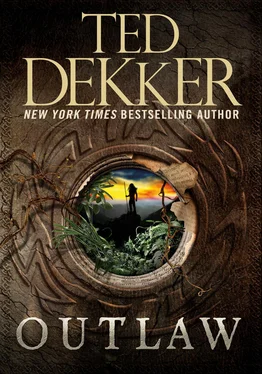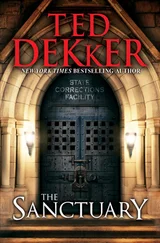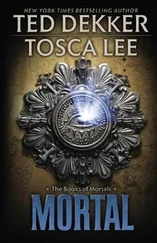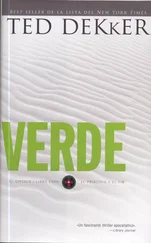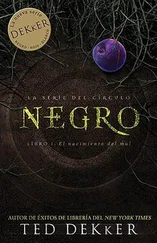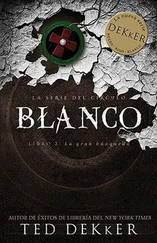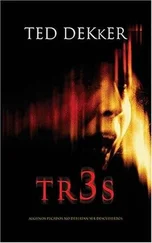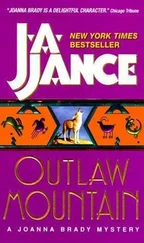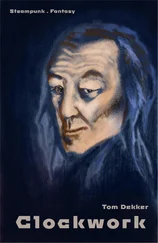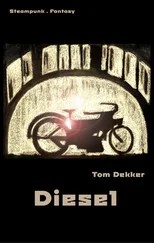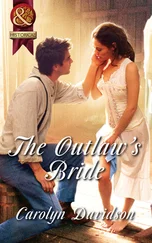I knew then that there was no way I was going out alone.
“The rivers are a meandering maze of mud and silt, changing—”
“And I’m supposed to do this alone?” I said. “With cotton in my ears and nose?”
“I can’t go,” he answered without a missing a beat, shaking his head. “They would hunt me down.”
It was nearly hopeless—he caught in his own fear; I still frantic from my ordeal. So I drew deep breaths and tried to still my hammering heart.
A comment he’d made when he first stumbled out of his cell returned to me and I turned to him. “You asked if I’d finally come. If I was her. What did you mean?”
He studied my eyes, thinking. “I’m not sure. Are you?”
“Am I what?”
“I’ve been having dreams,” he said, voice so very quiet. “I was meant to come. So is she.”
Dreams? My mind was filled with the dream that had haunted me in Atlanta. But by now I was so loath to accept its validity that I rejected any serious consideration. If my captivity and Stephen’s death were party to that vision, it had come from hell.
And what if that was true? What if I had died on that white sailboat and was now paying for my failure as a daughter? Was God like my earthly father, capable of such torturous abandonment?
I shivered and shifted my stare. I think the final doorway to that dream closed then, with the terrible fear that I had been lured into hell, not figuratively, but literally. I simply could not hold that thought in mind without breaking down.
So I didn’t. I blocked it out.
“Whoever she is, it’s not me,” I said.
Michael gazed at me for a few long moments. “Don’t know.” He grinned, baring dirty teeth. “Just crazy dreams. I know that I was meant to find Tulim. This is my home now. Somehow my wanton mind calls for a woman.” He shrugged. “Not for me. For this valley. Something much bigger than me or you. And I’m not saying it’s you or anybody, for that matter. But I’ve learned some things.”
He sounded like he looked—unhooked.
I made a conscious decision then never to regard the absurd dream that had first persuaded me against good judgment to leave Atlanta. The foolishness of my naïveté angered me.
“What have you learned?” I asked.
He nodded, suddenly in his element, and I listened as Michael told me “some things.”
He’d been taken captive by the Tulim, a previously unknown tribe who lived a hundred miles inland, just north of the better-known Asmat people whom he was studying. The valley system we were in contained several small peaks within a massive depression bordered on three sides by cliffs, and to the south by a swamp.
He began to speak in more lucid terms now. There seemed to be two parts to his psyche, one that dipped into his academic prowess, and one that had been broken by his imprisonment.
He was well versed in the entire region, having already spent several years traveling all of Irian Jaya. Did I know that all early attempts to make contact with the indigenous people along the south coast had failed miserably? Captain Cook had met with death and disaster when he tried to land in 1770. Even though Dutch missions had been set up along the coast long ago, the inexplicable ways of the Asmat deeper inland were hardly known.
“So then the Tulim are from these Asmat?” I asked.
“No. Heavens, no. Not alike at all. Well, in many ways, yes, I suppose they are similar to an unstudied observer. But the Tulim ancestry is a mixed bag. Influenced by crossbreeding with their slave trade over the centuries, which, to my knowledge, is unique to the Tulim in this part of the world. They are ethnically distinct from other tribes in the region. Taller, darker than the Asmat. Even some of their customs and names have been influenced by far reaches. It’s extremely rare. Staggering, actually. Hidden away here north of the Asmat live an undiscovered people that would deliver any anthropologist to heaven.”
He coughed.
“But they don’t accept change easily,” he said. “They reject most notions suggested by the outside. Whether it was the Japanese soldier they took during the Second World War, or a Chinese merchant, they judge most new ideas of advancement as the foolish talk of wam. And frankly, they might be right.”
“This is all good, but we need to talk about how to get out.”
“Just hear me out, you’ll see,” he said, lifting his hand to calm me. “You’ll see. You need to know what you’re up against if you expect to survive. There’s nothing but hundreds of square miles of Asmat territory between here and the coast.”
I sat and let him continue, though it was clear that the anthropologist in him was more interested in sharing his rare discovery than in discussing an escape he clearly thought was impossible.
While the Asmat were certainly fierce survivors, they lacked the natural resourcefulness that had allowed the Tulim to grow into such a formidable group. The people here were hidden not only from the Western world but from their Asmat neighbors, who consisted of nearly a dozen ethnic subgroups that spoke several languages.
Did I know that there were well over eight hundred distinct languages in New Guinea?
No, I did not. Neither did I care. But he was adamant that I hear him out.
Only a handful of the languages had any alphabet or written form. He was certain that he was the only Westerner who spoke Tulim. Many tribes had lived in complete isolation for centuries, particularly the peoples of the south coast, where the terrain was too forbidding for humans less skilled than the Asmat or the Tulim to navigate.
There were three other factors that kept the Tulim hidden from the world, he said, holding up as many fingers.
The first was that, in addition to the treacherous swamps to the south, the terrain leading into the mountains to the north was as impossible to traverse as the swamps.
Had I seen the documentary The Sky Above, the Mud Below , he wanted to know. It was the fascinating and detailed account of a joint Dutch-French attempt to cross this very territory by any means possible. Disastrous. Seven months and numerous deaths later, all but a few of the party were finally airlifted out.
He told me that 80 percent of soldiers involved in campaigns here during the war had perished, not at the hands of the Japanese, but at the hand of the greater enemy, the land itself. Crossing mountains such as these was, as the army engineers had learned, the ultimate nightmare.
The revelation only deepened my anxiety. The man seemed bent on making my case unmistakably certain: I was hopelessly trapped between the mountains that towered against the night sky to my right, and the impassable swamps to my left. I had the distinct feeling he was out to persuade me that I, like him, should just accept my fate here, in the Tulim valley.
He didn’t know me. I hadn’t been raised in privilege to die so far from home.
But then I saw another reason for his presentation. He was an anthropologist paying homage to the land and those who had conquered it. In some respects these included him, and he found some measure of pride in that fact. He could not hide the wonder in his eyes and the slight curve of his lips as he touted the land’s threats.
In some ways Michael was finally giving his report to the only Westerner he believed would ever hear it. This was his opus.
A second factor in the Tulim’s isolation, Michael continued, had to do with their animistic beliefs, which demanded they stay hidden from the evil spirits above. It was forbidden to build any structure under an open sky. They lived under the jungle’s thick canopy and avoided open spaces.
“Clearings like this?” I asked.
“Oh no, they would never build a path directly through this clearing. They would follow the tree line.”
Читать дальше
